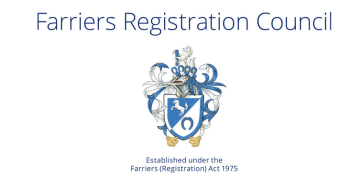Schools will have to collect student performance evidence again this year in case exams are cancelled, government has confirmed, despite half of schools consulted saying it will increase workload.
The Department for Education and Ofqual have confirmed their plans for “supporting resilience in the exam system” in 2023. The guidance tells schools to collect and retain evidence to be used for potential teacher grades for GCSEs and A-levels.
The two organisations said it was “very unlikely” exams would be canned, but “good public policy means having contingency, even for extremely unlikely scenarios”.
The government faced fierce criticism for not having an “off-the-shelf plan B” when exams were cancelled for a second time in early 2021 due to the pandemic.
A three week consultation was held this term on draft guidance, which aimed to “improve and streamline” the process by creating the “minimum possible burden”, while allowing a “broadly consistent approach” across all students.
But half of teachers, senior leaders and schools and colleges that responded said the arrangements would not prevent additional teacher workload.
However, only 94 school and college staff replied to the consultation, which had a total of 213 responses.
Only two-thirds of respondents said the guidance should remain in place beyond 2023. Ministers plan to consult on this in the summer term.
‘Guard against over-assessment’
The government and Ofqual said schools should plan test opportunities in line with their usual assessment approaches, such as mock exams. These can be varied if a school needs more evidence, they said.
But they stopped short of repeating advice on the frequency of testing from last year’s guidance, which said a “sensible approach” would be to test once a term.
Teachers should also “guard against over-assessment”, and normally would “not need to spend longer on these assessments than they would on their existing” test plans.
Ofqual made some tweaks to its proposed guidance, such as clarifying evidence can be kept digitally or physically, and that students should normally only be assessed on the content they have been taught.
Students should be supervised during tests, but schools don’t need to use external invigilators.
Exams workload warning
Overall, 158 of 213 respondents agreed the guidance was helpful.
However the DfE and Ofqual said a “key theme” in responses was the impact on teacher workload in creating, marking and moderating assessments.
One senior leader responded that there was “no question” the system added to teacher workload, adding: “Marking and moderating two sets of exams instead of just one set of mock exams doubles the workload.”
But officials said they had not stated the number of tests that should take place.
One exam board told the consultation it feared students may focus on responding to assessments rather than focus on learning opportunities.
And a school said “previously valuable formative assessments” could be turned into “magnified high-stakes” tests which impacts their motivation and corrodes their “love for learning”.
In response, officials said the guidance aimed to help schools to use arrangements “that work best for them and their students”.
Some schools said there would be costs involved, such as those associated with storing the evidence.
Ofqual said it recognised this, but said costs should be “proportionate to the aim of preparing for the eventuality that exams cannot go ahead for any reason, having learnt from the experiences of the past three years”.
The DfE will continue to monitor schools’ financial health and cost pressures they face, they said.
Meanwhile, Ofqual has decided to go ahead with plans to provide exam aids, such as formulae and equation sheets, in 2023 GCSE maths, physics and combined science exams.
More than 93 per cent of respondents said they agreed with proposals for a maths formulae sheet in 2023, and over 95 per cent supported having an equation sheet for physics and combined science.
















Your thoughts